This article was co-authored by Evan Parks, PsyD and by wikiHow staff writer, Jessica Gibson. Dr. Evan Parks is a Licensed Clinical Psychologist and an Adjunct Assistant Professor at The Michigan State University College of Human Medicine. With over 25 years of experience, he specializes in helping people manage chronic pain through the Acceptance and Commitment Therapy (ACT) Approach at Mary Free Bed Rehabilitation Hospital. He also has experience working with others on topics ranging from stress management to mental flexibility. Dr. Parks is also the author of Chronic Pain Rehabilitation: Active Pain Management That Helps You Get Back to the Life You Love. Dr.Parks holds a BA in Theology from Cedarville University, an MA in Counseling Psychology from Western Michigan University, and a PsyD in Clinical Psychology from The Forest Institute of Professional Psychology.
There are 10 references cited in this article, which can be found at the bottom of the page.
This article has been viewed 56,775 times.
Most people are afraid of something, but fear of stairs can seem debilitating. You might be uneasy about falling down them or the upward sloping of stairs can make you anxious. Maybe you go out of your way to avoid stairs, which can certainly make life challenging! If you're tired of feeling afraid, make small steps towards managing your fear. With practice and the right mindset, you can approach stairs with confidence.
Steps
Expert Q&A
-
QuestionHow can I train my mind to overcome fear?
 Evan Parks, PsyDDr. Evan Parks is a Licensed Clinical Psychologist and an Adjunct Assistant Professor at The Michigan State University College of Human Medicine. With over 25 years of experience, he specializes in helping people manage chronic pain through the Acceptance and Commitment Therapy (ACT) Approach at Mary Free Bed Rehabilitation Hospital. He also has experience working with others on topics ranging from stress management to mental flexibility. Dr. Parks is also the author of Chronic Pain Rehabilitation: Active Pain Management That Helps You Get Back to the Life You Love. Dr.Parks holds a BA in Theology from Cedarville University, an MA in Counseling Psychology from Western Michigan University, and a PsyD in Clinical Psychology from The Forest Institute of Professional Psychology.
Evan Parks, PsyDDr. Evan Parks is a Licensed Clinical Psychologist and an Adjunct Assistant Professor at The Michigan State University College of Human Medicine. With over 25 years of experience, he specializes in helping people manage chronic pain through the Acceptance and Commitment Therapy (ACT) Approach at Mary Free Bed Rehabilitation Hospital. He also has experience working with others on topics ranging from stress management to mental flexibility. Dr. Parks is also the author of Chronic Pain Rehabilitation: Active Pain Management That Helps You Get Back to the Life You Love. Dr.Parks holds a BA in Theology from Cedarville University, an MA in Counseling Psychology from Western Michigan University, and a PsyD in Clinical Psychology from The Forest Institute of Professional Psychology.
Licensed Clinical Psychologist Practice grounding yourself--when your mind is busy, distracted, and caught up with worries and concerns, it's easy to be more startled and jumpy. Take a look at your mind's activity while doing something basic, like watching traffic on a busy street. Ask yourself questions like "What do I hear? What do I see? What sensations do I feel? What do I smell?" By noticing your inside world while staying connected to the outside world, unexpected events can be noticed and accepted without a reaction of fear.
Practice grounding yourself--when your mind is busy, distracted, and caught up with worries and concerns, it's easy to be more startled and jumpy. Take a look at your mind's activity while doing something basic, like watching traffic on a busy street. Ask yourself questions like "What do I hear? What do I see? What sensations do I feel? What do I smell?" By noticing your inside world while staying connected to the outside world, unexpected events can be noticed and accepted without a reaction of fear. -
QuestionWhat causes phobias to get worse?
 Evan Parks, PsyDDr. Evan Parks is a Licensed Clinical Psychologist and an Adjunct Assistant Professor at The Michigan State University College of Human Medicine. With over 25 years of experience, he specializes in helping people manage chronic pain through the Acceptance and Commitment Therapy (ACT) Approach at Mary Free Bed Rehabilitation Hospital. He also has experience working with others on topics ranging from stress management to mental flexibility. Dr. Parks is also the author of Chronic Pain Rehabilitation: Active Pain Management That Helps You Get Back to the Life You Love. Dr.Parks holds a BA in Theology from Cedarville University, an MA in Counseling Psychology from Western Michigan University, and a PsyD in Clinical Psychology from The Forest Institute of Professional Psychology.
Evan Parks, PsyDDr. Evan Parks is a Licensed Clinical Psychologist and an Adjunct Assistant Professor at The Michigan State University College of Human Medicine. With over 25 years of experience, he specializes in helping people manage chronic pain through the Acceptance and Commitment Therapy (ACT) Approach at Mary Free Bed Rehabilitation Hospital. He also has experience working with others on topics ranging from stress management to mental flexibility. Dr. Parks is also the author of Chronic Pain Rehabilitation: Active Pain Management That Helps You Get Back to the Life You Love. Dr.Parks holds a BA in Theology from Cedarville University, an MA in Counseling Psychology from Western Michigan University, and a PsyD in Clinical Psychology from The Forest Institute of Professional Psychology.
Licensed Clinical Psychologist Our unhelpful mind may ask questions, like "What if something terrible is going to happen?" We end up focusing on this distress as we try to stop our mind from asking upsetting questions. In general, fear gets worse when we fight with our thoughts, and when we treat our thoughts and feelings as true, valid, and important.
Our unhelpful mind may ask questions, like "What if something terrible is going to happen?" We end up focusing on this distress as we try to stop our mind from asking upsetting questions. In general, fear gets worse when we fight with our thoughts, and when we treat our thoughts and feelings as true, valid, and important.
References
- ↑ https://www.helpguide.org/articles/anxiety/phobias-and-irrational-fears.htm#
- ↑ Evan Parks, PsyD. Licensed Clinical Psychologist. Expert Interview. 26 October 2021.
- ↑ https://theconversation.com/how-imagination-can-help-people-overcome-fear-and-anxiety-108209
- ↑ https://pubmed.ncbi.nlm.nih.gov/33345054/
- ↑ https://pubmed.ncbi.nlm.nih.gov/20141305/
- ↑ https://www.helpguide.org/articles/anxiety/phobias-and-irrational-fears.htm#
- ↑ Evan Parks, PsyD. Licensed Clinical Psychologist. Expert Interview. 26 October 2021.
- ↑ http://www.div12.org/sites/default/files/WhatIsExposureTherapy.pdf
- ↑ https://www.mayoclinic.org/healthy-lifestyle/healthy-aging/in-depth/fall-prevention/art-20047358
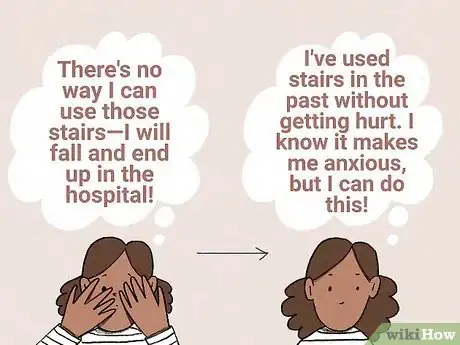

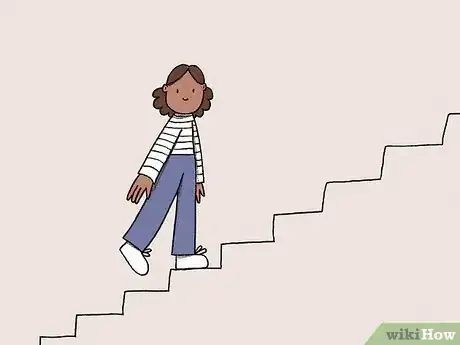
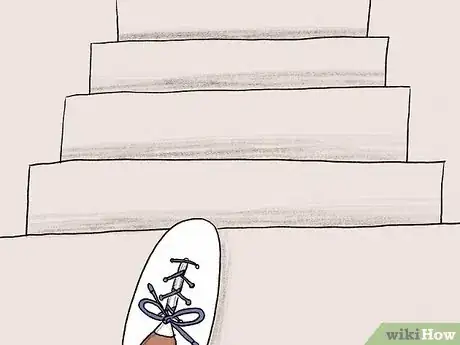
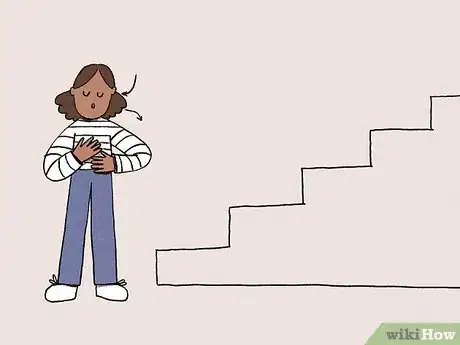

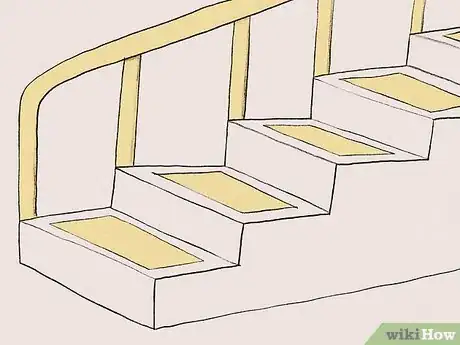
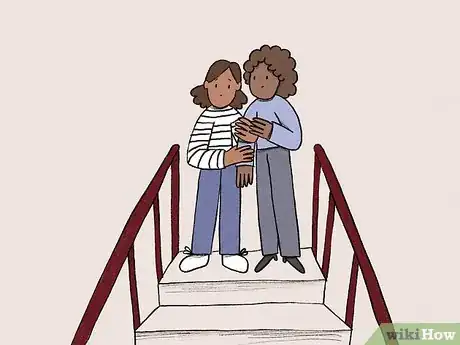
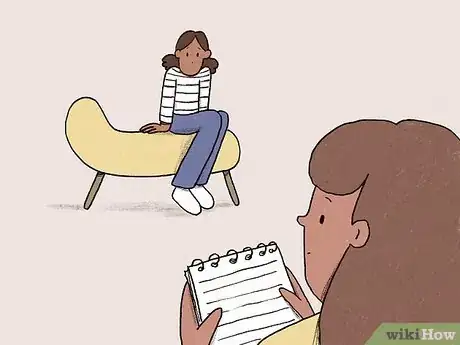

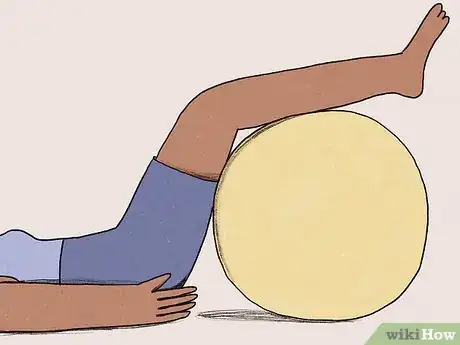








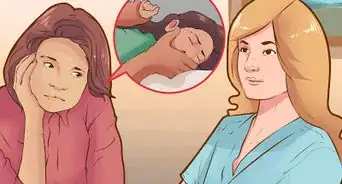




















































Medical Disclaimer
The content of this article is not intended to be a substitute for professional medical advice, examination, diagnosis, or treatment. You should always contact your doctor or other qualified healthcare professional before starting, changing, or stopping any kind of health treatment.
Read More...